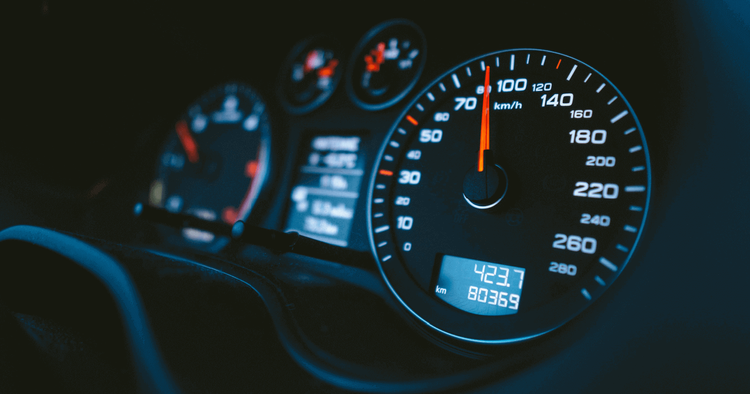
Fuel efficiency is a major concern for car owners, especially with rising fuel prices.How to Increase Car Mileage not only saves money but also reduces carbon emissions, making it an eco-friendly choice. Here are some effective tips to help you maximize your vehicle’s fuel economy.
1. Maintain Proper Tire Pressure
Under-inflated tires increase rolling resistance, forcing the engine to work harder and consume more fuel. Check your tire pressure regularly and keep it at the manufacturer-recommended levels for optimal efficiency. Additionally, consider using nitrogen instead of regular air in your tires, as it helps maintain stable pressure for a longer period.
2. Drive Smoothly
Aggressive driving—such as rapid acceleration, sudden braking, and high-speed driving—significantly reduces mileage. Instead, accelerate gradually, maintain a steady speed, and anticipate stops to reduce unnecessary fuel consumption. Using an eco-driving mode, if available in your vehicle, can also help optimize fuel efficiency.
3. Reduce Unnecessary Weight
Carrying extra weight in your trunk or backseat increases fuel consumption. Remove unnecessary items and carry only essentials to improve your car’s efficiency. Roof racks and carriers also create aerodynamic drag, so remove them when not in use.
4. Use Air Conditioning Wisely
Running the air conditioner puts extra load on the engine, reducing mileage. Use it sparingly and consider using the car’s ventilation system when possible. On highways, however, keeping windows closed and using AC may be more fuel-efficient than the drag caused by open windows. Parking in shaded areas and using windshield sunshades can also reduce the need for excessive AC use.
5. Keep Your Engine Tuned
How to Increase Car Mileage Regular engine maintenance, such as changing air filters, spark plugs, and using high-quality fuel, keeps your car running efficiently. A well-maintained engine improves combustion and reduces fuel wastage. Ensure that your fuel injectors and oxygen sensors are also checked periodically, as faulty components can reduce mileage significantly.
Use a Fuel System Cleaner
One simple way to improve fuel efficiency is by keeping your engine clean and free of carbon build-up. Using a fuel system cleaner can help remove deposits from fuel injectors, improve combustion, and enhance mileage.
- For petrol engines, try STP Petrol Fuel Injector Cleaner
- For diesel engines, go with STP Diesel Fuel System Cleaner
Just pour it into your fuel tank as recommended, and let it do the work while you drive.
6. Avoid Idling for Long Periods
Leaving your car idling wastes fuel unnecessarily. If you are stopping for more than a minute, consider turning off the engine. Modern engines consume less fuel when restarting compared to prolonged idling. Also, avoid excessive warm-ups—most modern engines require just 30 seconds to warm up before driving.
7. Use Cruise Control on Highways
Cruise control helps maintain a constant speed, reducing unnecessary acceleration and deceleration. This improves fuel efficiency, especially on long highway drives. However, avoid using cruise control on hilly terrain, as the system may overcompensate and use more fuel.
8. Plan Your Routes Wisely
Avoid heavy traffic, roadblocks, and frequent stop-and-go conditions. Using navigation apps to find the shortest and least congested routes can help you save fuel and time. Additionally, driving during off-peak hours can help maintain a steady speed and reduce fuel consumption.
9. Choose the Right Fuel
Using the recommended fuel type for your car ensures optimal performance and efficiency. Some premium fuels claim better mileage, but always refer to your vehicle’s manual before opting for them. Additionally, using fuel additives that clean the fuel system can enhance combustion efficiency.
10. Regularly Check Wheel Alignment
Misaligned wheels create unnecessary drag, making your car consume more fuel. Ensure your wheels are properly aligned and balanced for smooth driving and better mileage. Also, rotate your tires regularly to ensure even wear and optimal performance.
11. Use High-Quality Engine Oil
Using the correct grade of engine oil recommended by your vehicle manufacturer helps reduce friction and improve engine performance. Synthetic oils often provide better lubrication and longevity, contributing to improved fuel efficiency.
12. Monitor Your Driving Habits with a Fuel Tracker
Installing a fuel efficiency monitoring app or device can help you track fuel consumption and adjust your driving habits accordingly. Some modern vehicles come with built-in fuel economy tracking systems that provide real-time feedback on your driving efficiency.
Conclusion
Improving your car’s mileage is a combination of good driving habits, regular maintenance, and efficient route planning. By following these simple tips, you can enhance fuel efficiency,How to Increase Car Mileage save money, and contribute to a greener environment. Start implementing these changes today and enjoy better mileage on every drive! Also, check out our guide on 5 Easy Ways To Remove Scratches From Your Car At Home to keep your car looking great.

